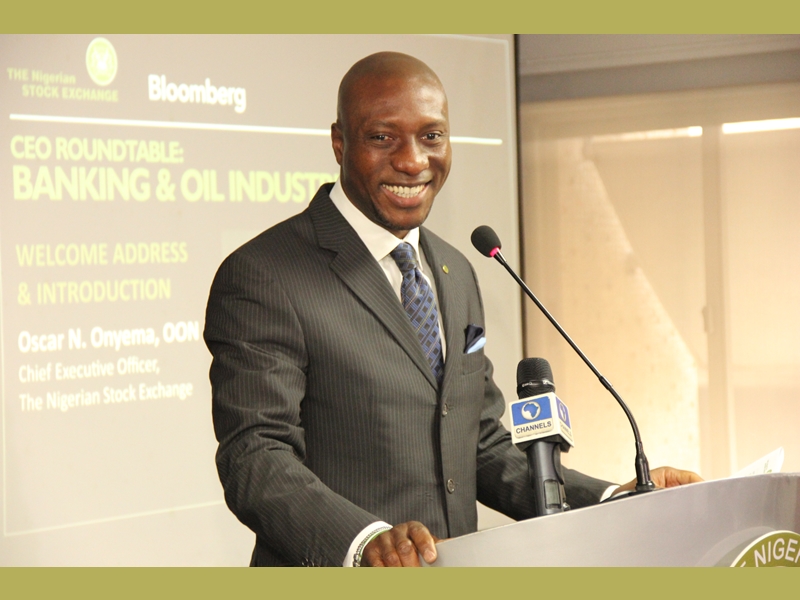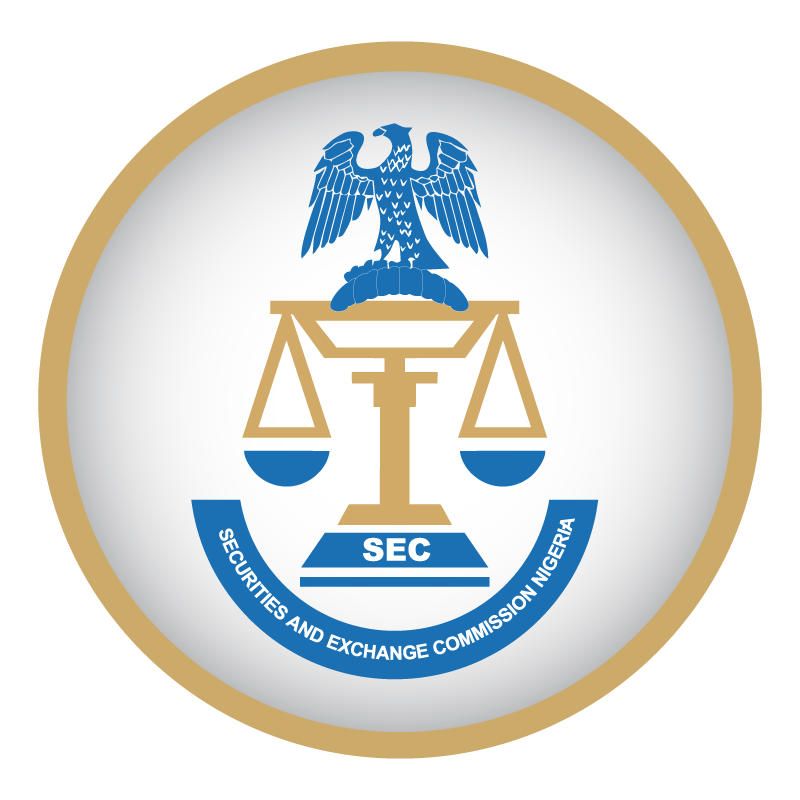- NSE ETFs Assets Hit N4.26bn in Five Years
The Nigerian Stock Exchange on Monday said the Assets Under Management of the eight listed Exchange Traded Fund stood at N4.26bn as at September, 2016.
The NSE Chief Executive Officer, Mr. Oscar Onyema, spoke at the ETF 2016 workshop organised by the bourse in partnership with Stanbic IBTC Asset Management, Lotus Capital and Vetiva Fund Managers Ltd. in Lagos.
An ETF is an investment vehicle that tracks an index, a basket of assets, or a commodity, but trades like regular shares on a stock exchange.
These investment vehicles allow investors a convenient way to purchase a broad basket of securities in a single transaction.
Onyema said that the figure represented a growth of 1,900 per cent when compared with AUM of N287.5m in 2011 when ETF was introduced on the Exchange.
He said, “As at today, we have recorded about 1,900 per cent growth in our ETF market with total AUM of about N4.24bn as at September 2016 on eight ETFs currently listed and traded on the Exchange.”
He said that ETFs were introduced on the NSE in December 2011 with cross listing of Newgold ETF with AUM of N287.5m to provide investors with new opportunities to diversify their portfolios and access the market.
Onyema said that the eight ETFs in the market are Newgold ETF, Vetiva Griffin 30 ETF, StanbicIBTC ETF 30, Lotus Halal Equity ETF, Vetiva Sector Series ETFs- Banking, Consumer Goods and Industrial, and Vetiva S&P Nigerian Sovereign Bond ETF.
He explained that the Exchange had six equity backed ETF, one commodity ETF, and one bond ETF.
He said that global ETF AUM had grown to $3tn within five year in April, 2016 from $1.4tn in December 2010, representing a growth of over 102 per cent.
He said, “Experts have predicted the continued growth of the ETF industry, estimating that global AUM will reach at least seven trillion dollars by 2021.”
The NSE chief said that currently, there were about 506 ETF investors in the market.
He, however, expressed optimism that “the growth of ETFs in Nigeria has only just begun with the support of market intermediaries, stakeholders and our regulator”.
Onyema said that the existence of ETFs in the Nigeria market was beneficial to retail and institutional investors, as ETFs offer a direct and inexpensive way to attain diversified exposure to an index, commodity, sector or region.
He said ETFs also offer additional benefits of low expense ratio compared to mutual funds, increased liquidity.
Onyema said that this could be used to execute different investment strategies asides from diversification and tradability.
He further said that the workshop was organised to create awareness of the product, address its challenges and promote the opportunities in Nigeria and Africa.
He said, “The Exchange remains committed to partnering with all market stakeholders, to continue to build and develop the Nigerian capital market, while offering a wide range of investment vehicles for all investors.”
The Executive Director/Head, Sub-Saharan Africa Client Coverage Team, MSCI, Mr. Gareth Allison, said that ETF aids investors to diversify their diversification.
Allison said that MSCI would aid the Exchange to develop and transform its ETF market.
He said, “We want to help investors to utilise opportunity in the market and make maximum return.”
On the Fundamental of Market Indices, Allison said that investors need to understand the underlying assets before investing in any market.
He said that indices were very important in investment decision, and as well used as policy benchmark.
He said, “Market is revolving, investors are revolving too, and we are faced with behavioural investors.”
In her comments, Ms. Nerina Visser, ETF Strategist and Advisor from South Africa, said that market regulators needed to know the type of ETFs to develop to ensure investors patronage.
Visser said that market markers were needed to act as liquidity boosters for ETF to thrive in any market.
She said that South Africa had the highest market for the product with 74 Exchange Traded Products across all asset classes.
Visser added that market should come out with specific investors’ needs in the establishment of ETF.
She also said that regulators should consider reducing trading fees for ETF to increase patronage.


 Forex2 weeks ago
Forex2 weeks ago


 Naira2 weeks ago
Naira2 weeks ago
 Naira4 weeks ago
Naira4 weeks ago
 Billionaire Watch1 week ago
Billionaire Watch1 week ago
 Company News4 weeks ago
Company News4 weeks ago




 Naira2 weeks ago
Naira2 weeks ago




 Naira1 week ago
Naira1 week ago




 Naira4 weeks ago
Naira4 weeks ago





















